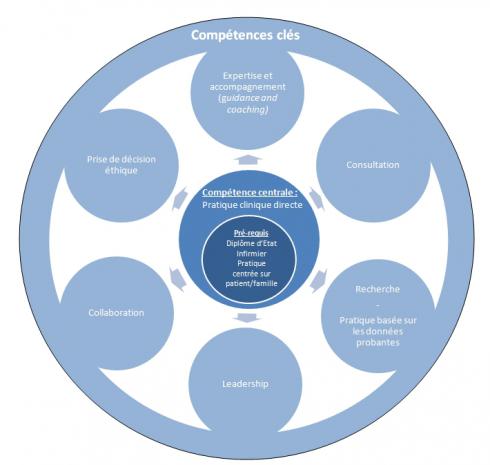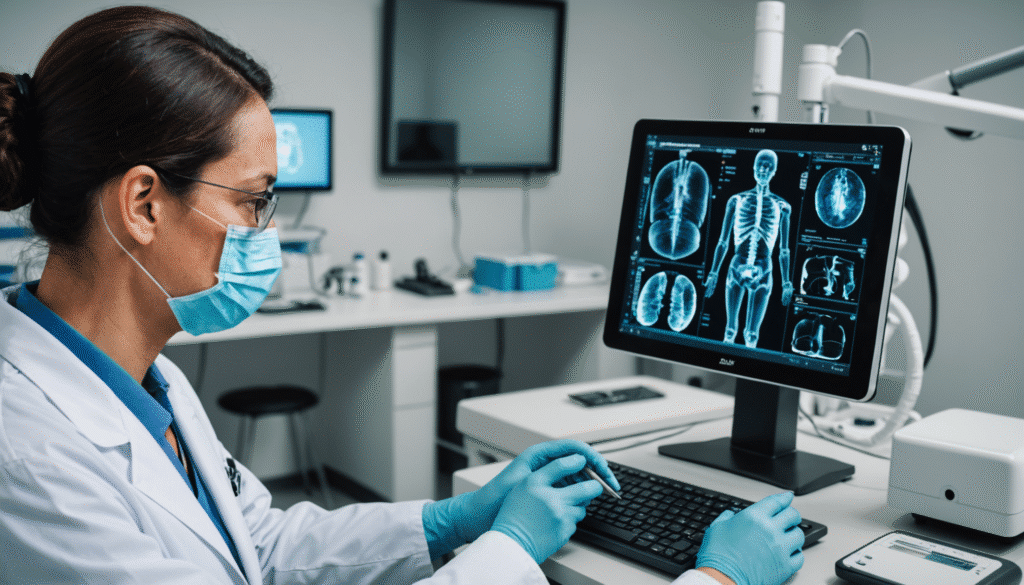The evolution of nursing care is marked by the emergence of educational innovations which support the training of professionals. Advanced nursing practice (ANP) represents an essential response to the shortage of professionals health, allowing better management of care pathways. Thanks to the acquisition of expanded skills, advanced practice nurses play a crucial role at the interface between nursing and medical practice, thereby improving access to care and the quality of life of patients. These transformations promote a multidisciplinary approach and a more inclusive and adaptive model of care.
|
IN BRIEF
|
Recent developments in the field of nursing aim to meet the challenges of constantly changing health. There advanced nursing practice (PIA) presents itself as an innovative response to the growing needs of the population, by transforming the training of nurses and broadening their skills. This article addresses the main innovations in this sector, highlighting the challenges and benefits associated with this development.
Understanding of advanced practice
There advanced practice is defined by the acquisition of specific skills that enable nurses to practice at an increased level of expertise, both in direct care and in management functions. Far from being limited to a simple enlargement of tasks, the IPA, or advanced practice nurse, combines theoretical and practical knowledge intended to improve theaccess to care and the quality of patient health pathways.
Evolution of training programs
In the context of legislative developments, particularly with the health system modernization law of 2016, nursing training programs have been thoroughly revised. THE state diploma in advanced practice nursing (DE IPA) was created, integrating multidisciplinary teaching and advanced clinical internships. This training, accessible at master’s level, prepares nurses to become key players in the management of complex and chronic pathologies.
Advanced Practice Objectives
Advanced practice has a dual objective: on the one hand, reduce workload health professionals by relieving them of certain administrative tasks and, on the other hand, improve the quality of care offered to patients. By making nurses more autonomous and equipping them with advanced skills, this approach aims to optimize care pathways, while guaranteeing personalized and effective care.
Skills and Implications for Advanced Practice Nurses
Advanced practice nurses acquire expanded skills on topics such as diagnosis, chronic disease management and health education. These skills place them at the interface of nursing and medical practice, allowing them to work in collaboration with other healthcare professionals to offer a coherent care pathway. There chronic disease management is particularly highlighted, with specific strategies adapted to the needs of patients.
Educational innovation and new learning approaches
Innovations in nursing education are not limited to adapting content. New educational approaches, including simulation-based learning and e-learning, are increasingly being integrated. These methods allow students to confront realistic clinical situations while promoting interaction and engagement. These educational innovations aim not only to maintain a high level of competence, but also to prepare nurses for constantly changing care environments.
Reforms to nursing education with the introduction of advanced nursing practice represent a significant step forward toward a more inclusive and responsive medicine. The profession is evolving, and with it, the way care is provided and perceived.

Innovations in nursing education represent a major shift toward advanced practice, which aims to strengthen the skills of healthcare professionals to meet the growing needs of patients. This approach combines improving access to care and optimizing health pathways, thus facilitating the integration of advanced practice nurses (APNs) into care teams. This study aims to explore the different dimensions of training, promote the multidisciplinary approach, and highlight the importance of educational innovation.
Educational innovation
There nursing training must evolve to integrate innovative teaching methods. The use of digital technologies, such as e-learning platforms and virtual simulations, can greatly improve the effectiveness of learning. These tools provide flexible and personalized learning opportunities, allowing students to learn practical skills in a risk-free environment. Therefore, it is essential to train future nurses in the use of these technologies in order to prepare them for a modern and adapted professional practice.
Multidisciplinary training
Another essential aspect of innovation in nursing education lies in the multidisciplinarity. It is crucial that training programs include courses that allow nurses to work collaboratively with other healthcare professionals. This may include joint sessions with doctors, pharmacists, and physiotherapists. By fostering an interprofessional approach, students will be better prepared to manage complex clinical situations and make informed decisions in patient care.
Expanded skills of IPAs
Advanced Nursing Practice authorizes nurses with a master’s degree in advanced practice to exercise with expanded skills. These healthcare professionals can now perform medical procedures, prescribe treatments and implement specific care plans. It is therefore imperative that the training of nurses considers the training of these advanced skills from the start of their course. A detailed curriculum not only helps to standardize their learning, but also to guarantee a high quality of care, adapted to the requirements of public health.
Chronic disease management
Nursing education must also focus on chronic disease management. In an era of population aging, nurses must acquire specific skills to supervise the care of patients with complex and chronic pathologies. Emphasis should be placed on preventive strategies, patient education, and psychological support. By integrating these elements into the training program, RPNs will be able to better respond to the challenges related to the management of chronic diseases in their daily practices.
Access to continuing education
Finally, it is essential to promote theaccess to continuing education for nurses already in practice. As the profession is constantly evolving, professional development programs should be systematically offered to nurses to keep them up to date with new practices and technologies. This training must be accessible, flexible, and adapted to the specific needs of nurses in order to allow them to enrich their skills as their career progresses.

THE innovations in the training of nursing represent a strategic response to the contemporary challenges of the health system. There advanced practice of nursing emerges as an essential model, aimed at improving theaccess to care and to optimize the quality of patient care. By integrating expanded skills at the interface of nursing and medical practices, advanced practice nurses (APNs) play a key role in reducing the workload of healthcare professionals while ensuring high-quality healthcare.
The implementation of this new form of practice is based on a adapted training, which must be continually revised to respond to changing public health needs. THE master’s degree in advanced practice is therefore essential to prepare competent professionals not only clinically, but also managerially and educationally. This allows them to intervene effectively in varied contexts, to assume expanded responsibilities when managing care, and to adapt care strategies to chronic illnesses.
Furthermore, with the acceleration of digitization of the health sector, training must also integrate technological tools. Initiatives such as the remote monitoring patients illustrate how innovation can transform care methods, making care more accessible and personalized. It also opens the way to innovative educational approaches that promote a better understanding of contemporary health care issues.
Finally, legislation such as health system modernization law of 2016 created a framework conducive to the emergence of IPAs, making it a fundamental pillar of My Health 2022 strategy. This legislative and administrative context, coupled with a change in mentalities, is fundamental to sustaining advanced nursing practice and guaranteeing appropriate, quality care pathways for all patients.











